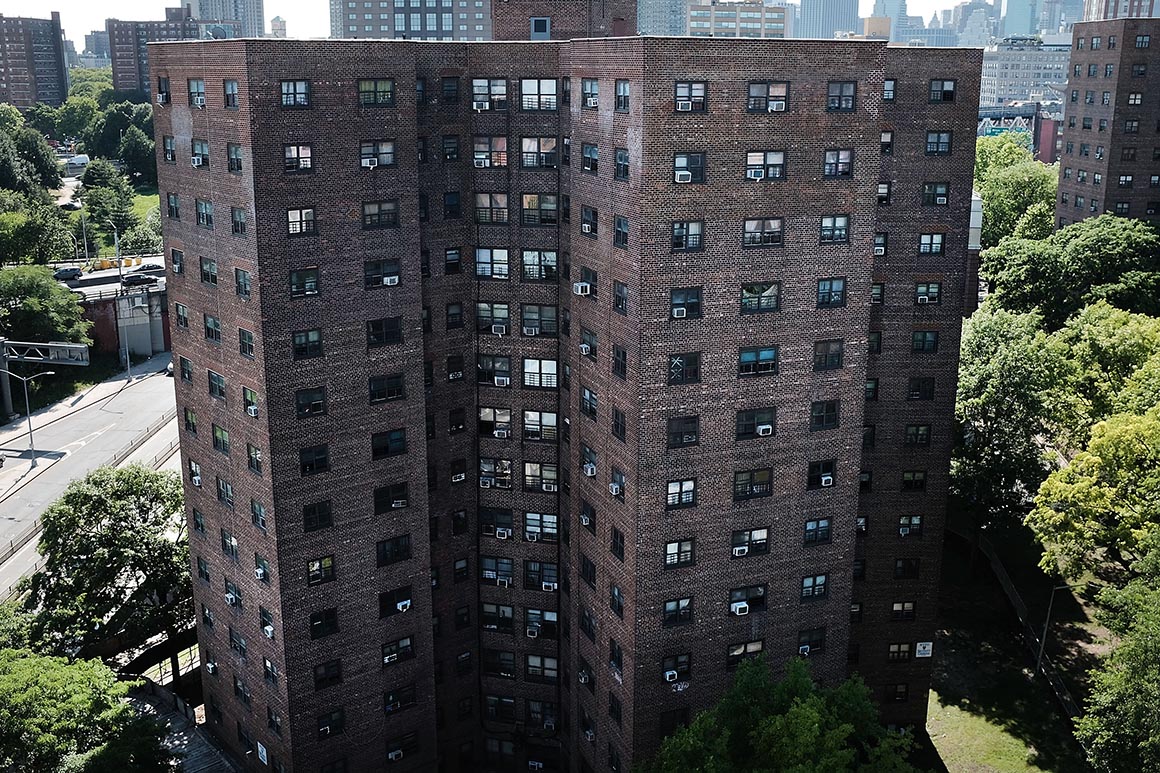
That and rising black unemployment could make for a combustible mix on the streets. The May 25 killing of George Floyd, a black man, at the hands of cops has sparked protests in cities around the country. Mass evictions this summer would almost surely fuel additional unrest.
“Think about it: People are still unemployed. If they’re being evicted, they’re going to be out in the streets anyway,” said Lisa Rice, president and CEO of the National Fair Housing Alliance. “If what you want is to get people back to work and not have people out in the streets protesting, then maybe you don’t want to kick them out of their houses.”
“Wall Street has bounced back, the stock markets are doing fine, rich folks are becoming more wealthy — the Jeff Bezos’s of the world are getting richer — and we’re getting evicted. It’s just a recipe for disaster,” she added.
House Speaker Nancy Pelosi told housing advocates on a call last week that the furor over Floyd’s death had brought new urgency to discussions of the racial disparities endemic in American life.
“One knee to the neck just explode[d] a tinderbox of other injustices that we must address, and one of them is housing,” Pelosi said. “Housing security is a matter of justice, as structural racism puts communities of color unfairly at risk of being rent-burdened or homeless.”
The congressionally mandated eviction plan applies to tenants in buildings with federally backed mortgages — covering just over 12 million of the nearly 44 million rental units in the country. Others may be covered by a patchwork of state and local moratoriums, but those are also starting to expire. Twelve states ended eviction protections in May, and the 8.2 million renters in New York will see their protections start to lapse on Aug. 20.
That gives a large advantage to white people: While about 74 percent of white households live in homes they own, only about 44 percent of black households and 49 percent of Latino households do, according to census data.
Black and Latino households also pay a higher share of their income on rent in most major metropolitan areas, according to a Zillow analysis.
House Democrats have passed sweeping legislation that would replace the current eviction ban on federally backed properties with a 12-month expanded moratorium on evictions for all tenants. It would also give tenants $100 billion in rental assistance to prevent falling behind on payments and getting hit with a massive bill when moratoriums end.
It’s not just Democrats who are worried about a potential rash of evictions, though. Sen. Martha McSally (R-Ariz.) said this week that policymakers need to figure out “what else can be done for the renters to ensure that they’re not put in a situation of potential eviction once the grace periods might end.”
Source: politico.com
See more here: news365.stream






